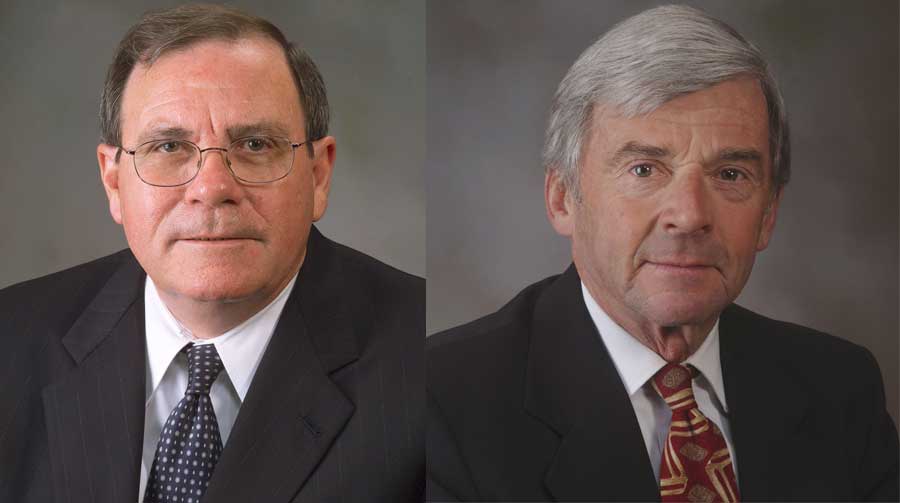Pamplin College inaugurates innovative program to ease national faculty shortage

On June 2, a special group of 10 students, all with doctorates, will begin classes in an innovative program developed by Virginia Tech's Pamplin College of Business to help alleviate the critical national shortage of business-school faculty.
The college is among four U.S. business schools that are the first to launch post-doctoral “bridge-to-business” programs approved by AACSB International (Association to Advance Collegiate Schools of Business), the accrediting organization for business schools worldwide. The programs are designed to prepare individuals with Ph.D.s in non-business, but related, disciplines for new careers as business faculty members.
Frank M. Smith, Pamplin’s director of management and professional development, said the college’s eight-week, instructor-led residential program offers two tracks: finance, for those with doctorates in economics, and marketing, for those with doctorates in psychology, sociology, or statistics.
The students who have been admitted to Pamplin’s program hold doctorates in economics, agricultural economics, statistics, philosophy, or educational technology from the following universities: Delaware, Purdue, Southern Illinois, State University of New York-Stony Brook, State University of New York-Binghamton, Texas Tech, Memphis, Virginia, and Virginia Tech.
Of the 10, seven have been admitted in the finance track and three in marketing. One of the finance students has already secured a job at Georgia State University, Smith said, with the assistance of Pamplin finance professor Dilip Shome. Smith said the inaugural program attracted 150 enquiries and that he has received another 50 enquiries about next year.
Pamplin Dean Richard E. Sorensen, who chaired AACSB’s working group on the doctoral faculty shortage, said there are currently about 1,000 job openings for Ph.D.-holding faculty at more than 400 AACSB-member schools in the United States. “The shortage of academically qualified faculty is projected to increase to 2,400 openings by 2012.”
The reasons for the faculty shortage, he said, include the 5 percent decrease in business doctorates earned worldwide. According to AACSB, 5,872 doctorates were earned in the 1995-99 period, compared with 5,611 in the 2000-05 period. Other supply-related reasons are competing employment offers from government agencies and industry; the fact that about half the doctoral graduates from U.S. institutions are foreign students, many of whom subsequently return home; and the retirements of existing faculty members. Meanwhile, on the demand side, demand for faculty has risen, driven by significant increases in business-student enrollments.
“The underlying concept in post-doctoral bridge programs has been proven for years by non-business Ph.D.s working productively as faculty members of business schools,” Sorensen said. “Ph.D.s in economics, for example, already have basic research and teaching skills and need only additional training focusing them in finance.” At Pamplin, faculty members without business doctorates include finance professor Rodney Thompson, who has a Ph.D. in economics, and marketing professors David Brinberg and Kim Weaver, whose doctorates are in social psychology.
Until the AACSB led the way, Sorensen said, there had been no formal program to boost faculty numbers through retraining non-business Ph.D.s. Growing increasingly concerned about the shortage, AACSB solicited proposals for post-doctoral bridge programs from its member schools in February 2007. In September, it approved programs at only five business schools — at Tulane University, the University of Florida, University of Toledo, Grenoble Ecole de Management in France, and Virginia Tech’s Pamplin College of Business.
AACSB has also led the development of another program, aimed at preparing experienced business professionals without doctorates of any kind for academic careers that focus on teaching rather than research.
- To apply to Pamplin’s post-doctoral bridge program, e-mail Frank Smith or call (540) 231-4972.
- Learn more about the AACSB program endorsement.
- Read the related University Spotlight: “Opportunity: When demand exceeds supply.”




